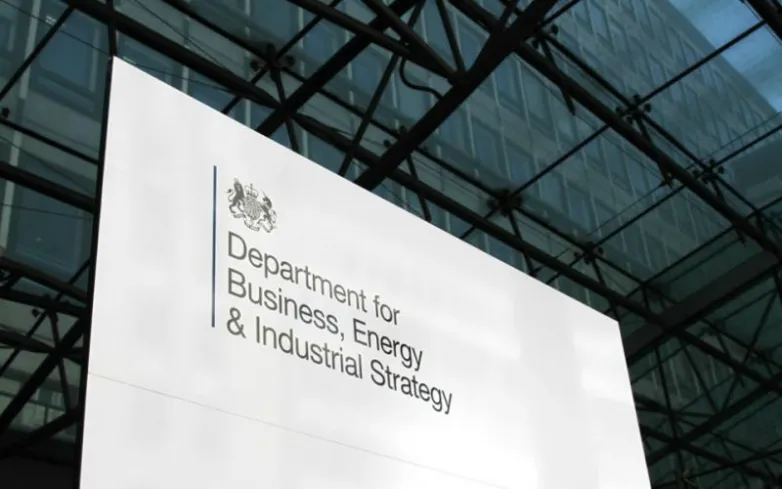UK to relax planning laws as new energy strategy lays out hope of five-fold boost in PV capacity by 2035
- The UK government has committed to a significant ramp-up of solar capacity in the nation as part of a brand-new energy strategy.

Unveiled today, the 'British Energy Security Strategy' remains in response to boosting energy price volatility that has actually been exacerbated by Russia's intrusion of Ukraine. It consists of a collection of actions and also new targets for generation technologies created to see Britain derive as much as 95% of its power from low carbon resources by the end of this decade.
Amongst strategies to dramatically ramp up the capacity of the nation's nuclear as well as overseas wind portfolio, the strategy additionally states the UK's intent to raise its existing 14GW capacity of solar PV, indicating that this can grow "as much as five times" by 2035.
Such a boost would see the UK's solar capacity reach 70GW, which trade body Solar Energy UK claimed had the possible to sustain up to 60,000 sector jobs.
In order to achieve this, the federal government has claimed it will seek advice from on the policies for solar projects, with a specific focus on property as well as industrial rooftop installations.
The complete strategy, released today, devotes the government to speaking with on changes to preparing regulations in the UK which will certainly "strengthen policy in favour of development" on non-protected land-- i.e. land of low agricultural value as well as non-greenbelt websites-- nonetheless, environmental managements are to stay in position.
The paper also states the government will incentivise roof solar by "significantly simplifying" planning procedures relating to allowed advancement rights, with additional factors to consider concerning the "ideal method to use public field rooftops".
The last time allowed advancement rights in the UK were amended for rooftop solar was in 2015, when the limit for permitted development for such installations was raised from 50kWp to 1MWp. Permitted growth rights permit projects to continue without formal preparation permission from regional preparation authorities, essentially improving the planning procedure.
At the time of writing, no specific consultations have been released by the country's Division for Business, Energy and Industrial Strategy (BEIS). A BEIS spokesperson might not offer more detail concerning the assessments when spoken to by PV Tech.
Previous reports had recommended that the government was to establish a specific target for solar PV release of up to 50GW by 2030-- the nation's solar industry has actually repeatedly asked for a target of 40GW by the very same day to be set in area by the federal government-- however the record has also been repeatedly postponed by rumoured disagreements within Prime Minister Boris Johnson's cabinet.
Nevertheless, Johnson has trumpeted the energy strategy today. "We're setting out strong plans to scale up and also accelerate cost effective, clean and also safe energy made in Britain, for Britain-- from brand-new nuclear to offshore wind-- in the decade ahead," Prime Minister Boris Johnson stated.
However the strategy has been widely criticised for doing not have in specific information and also falling short to take on locations thought about important to any future energy strategy, such as demand side reaction and also domestic insulation.
UK policy thinktank IPPR rejected the strategy as a "dish for failure". "This plan ought to have been a path map for the UK to make substantial progression in the direction of a much more budget-friendly, safe and secure, as well as clean energy future, but from what we've seen so far, it fails on every examination," IPPR associate director for energy and also climate, Luke Murphy, said.
Alice Bell, co-director at entrance hall team Feasible, additionally noted that the number of solar jobs promised to be produced over the rest of this decade is less than the number of jobs the sector shed in 2016, after the Conservative federal government of the moment instituted major cuts to aid assistance.
"The guarantee of 10,000 solar jobs in six years is hard to stomach when it was only 6 years ago that the Solar Trade association were regreting the 12,500 jobs that the Cameron government reduced in just a year. Cameron and Osborne managed to slash 12,000 solar jobs in a year, now Johnson as well as Sunak are stating they'll make 10,000 in 6? It's rarely the visionary energy policy we're seeking from the Prime Minister," Bell said.
UK trade body the Association for Renewable Energy as well as Clean Technology additionally criticised the strategy as "completely insufficient", with CEO Nina Skorupska mentioning the government had actually "fallen short to rise to the obstacle facing the country".
Also read

